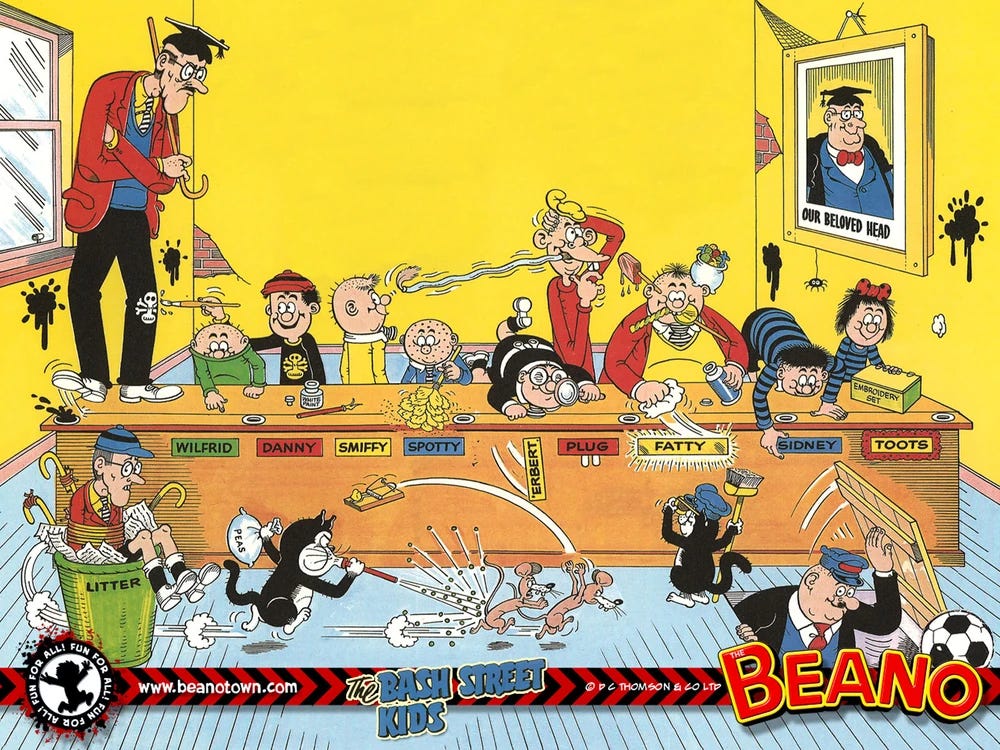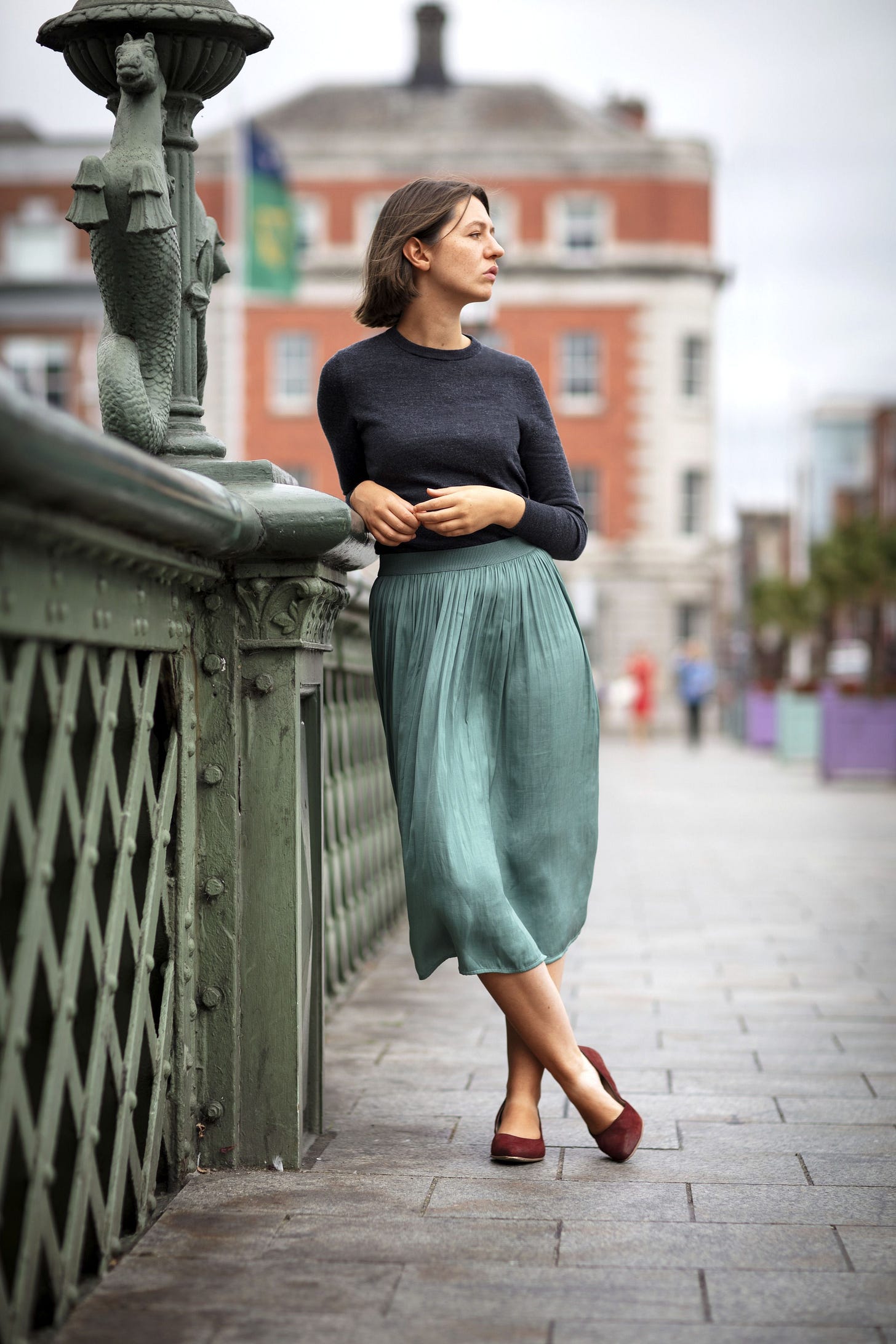Bullying nouns and sneaky adverbs – inside the Grammar Class
Wouldn't it be nice if all the parts of speech got on together? Dream on...
My brain is preoccupied with a book proposal at present. One surprising side effect is this: my literary agent keeps getting into my dreams.
A couple of weeks ago, he intruded into my subconscious to tell me I’d never get published because I dress so badly, making particular reference to a 1990s vintage red cardigan from M & S. Earlier today, at about 3.30am, when I was fast asleep, we were discussing children’s books when he told me about a story about a little boy who’d caught a noun bullying an adjective.
I woke up and the conscious, if not entirely sensible, part of my brain took over and started writing.
This has happened before on sleepless nights. I have composed whole newspaper opinion pieces as an alternative to counting sheep and, once, a whole punk musical based on a knitwear town in the Midlands. Coleridge did something similar with Kubla Khan until a person from Porlock interrupted him halfway through the transcription. I live a long way from Porlock and so got my dream down uninterrupted. You decide if that’s a good thing or not.
All you need to know by way of a preface is that if, like me, you spend a lot of time thinking about and teaching writing, the parts of speech begin to take on their own personalities. Let’s go straight to the Grammar Class and see how that plays out.
Right. I want all the nouns to stand up. What’s happened here?
There is an Adjective sitting on the ground: stricken, bruised and upset.
Sir, the wall is our property, said the Nouns. There was no room for him there.
That’s not true! cried the Adjective. There were lots of empty spaces. I was feeling tired and the wall looked comfortable.
It’s always about your feelings! jeered the Nouns.
The teacher sighed. Because of their greater numbers, the nouns in the class had a habit of bullying the other parts of speech. One of their more pompous members now took the floor.
The incident in this case is in the ongoing context of in-sentence relations and language evolution, he said.
There they go again. Crowding everyone else out and only grudgingly admitting a very small verb into their company. The self-importance of the noun class was becoming a problem.
And hell, that’s all he needed. A representative of the Proper Noun put up her hand.
Please sir, can first establish what this Wall is called? Is it a Berlin Wall, a physical barrier between historically divided communities, or perhaps just the symbolic Wall of the Pink Floyd’s, er –
Dystopian, muttered the Adjective, still rubbing his head –
– Dystopian musical Work and associated Film of 1979.
An improper wall. Photo by Greg Shield on Unsplash
The teacher sighed.
Proper Noun, how many times have I told you that your cousins the normal Nouns do not require a capital letter and have not since about 1770?
In my Country we still that Rule follow, said the German Exchange Student.
The teacher started to say something, but thought better of it. Instead he turned to the Verbs, muttering conspiratorially to their Adverb mates in the corner.
Verbs! Play attention, please. You were there. What happened? Did the Adjectives fall or were they pushed?
And did they do so screamingly or silently? interjected the Adverbs – not very helpfully, thought the teacher.
As the Verbs were about to speak they were interrupted.
Sir! Sir! clamoured the Nouns. The focus and attention should be on the rights and responsibilities of the constituent grammatical classes.
Bloody rights! said the Adjective. What about my bruised suffix?
The teacher sighed. Not long until the holidays, he thought. A time when he could loosen his metaphorical tie, sit back and not think about a single verbal solecism all summer. (Oops - no main verb in that sentence. DAMN! DAMN!!! What does it matter???!!)
A small voice from the Punctuation table interrupted his reveries. Please, Sir, it said in a put-out kind of voice. I know we are not meant to intrude on your private, internal thoughts; however, we would like to stress that a single punctuation mark – in the above case, the interrogative and exclamatory marks – should be adequate (we’d almost say ‘more than adequate’ were we certain that were not a false comparative) to convey the depths of your feelings.
Thank you, said the teacher, trying not to think secret thoughts about the Punctuation group's growing tendency towards pedantry.
And what’s wrong with pedantry? said a cross voice at his side – a pernickety Tenses pupil. At least Punctuation observed the correct use of the subjunctive.
He added slyly and meaningfully, added the Adverb, knowing that subjunctive was widely seen as one of the teacher's weak points.
There was more jostling and jeering in the corner as a group of Nouns surrounded the adjective. Timewaster! Spare part! they called out.
Sir! Cried the adjective. I am feeling bullied and marginalised!
Crybaby! Wuss! shouted the nouns.
We all need a holiday, said the teacher. Especially you, Adjectives. Maybe somewhere sunny, vibrant, welcoming and spectacular.
The adjectives were delighted. They love travel.
Just waiting for an adjective to turn up. Photo by Tehzeeb Kazmi on Unsplash
We could go to the Adriatic, the Mosquito Coast or the Hindu Kush, said the Proper Nouns.
But the shouting and the jostling went on.
Punctuations! shouted the teacher. Do something useful and put a stop to it.
We certainly can… said the Punctuation team.
Hang on! Said the teacher. It doesn’t need three of you.
And why not….?
STOP IT! You’re just adding more uncertainty and fluidity.
And then a voice no-one had heard in a long time rang out.
It is time: the bell has rung.
The full colon. Everyone looked around in puzzlement – they’d almost forgotten she existed. Still, she spoke with a quiet authority: and the class calmed down. (Instantly, muttered the adverb).
The class filed out, kept in remarkable order by the Commas, marshalling the nouns, escorting the hurt adjectives, reassuring the verbs and ensuring their colleagues on the punctuation team that, no, they were not going to let the process go dribbling on forever and, no, again, they didn’t need to call their Parenthesis.
Left alone, the teacher reached into a secret drawer, breathed an exhausted sigh, drew out an infinitive and decided to instantly split it right there and then. A head poked around the door. How did you split that infinitive, Sir?
Defiantly, said the teacher to the Adverb.
Don’t quote me
Sally Rooney: flying high with no frills
‘Apostrophe? Where’s the Apostrophe?’
Absent with no sick note.
When I wrote the above dialogue-heavy passages, I decided to italicise the spoken parts rather than do the orthodox thing and use inverted commas ( “...”).
Why? It looked better. That’s not an argument I’d try on Eric Partridge, R L Trask and the other gods in the pantheon of correct English. But it has the virtue of being fashionable. Sally Rooney, who writes novels full of dialogue, and very successful books they are – I doubt she has anxiety dreams about her agent – says she sees no need for them. James Joyce, another Irish writer, called them “perverted commas”. According to The Economist, which has never seen a number it doesn’t want to crunch nor a phenomenon it can’t phenomenonalise, notes the use of quote marks in Booker Prize-listed works has fallen from 94% in the 1970s to just 72% in the past decade. (And yes, that should be ‘1970s’, not ‘1970’s’).
As ever, writing style and personal style – the way you dress – coalesce. Rooney and the rest think quote marks look frilly: and in the pictures I’ve seen, Sally Rooney looks like she has never worn a frill in her life.
We’ve been through the smart-casual era in English prose. Looks like we’re entering the grammatical age of t-shirts, round-neck sweaters and joggers.
What the hell was THAT all about?
Want to know why the Nouns were so nasty and the verbs so-put upon in that story? Paid subscribers get to see it all deconstructed in the companion blog.








